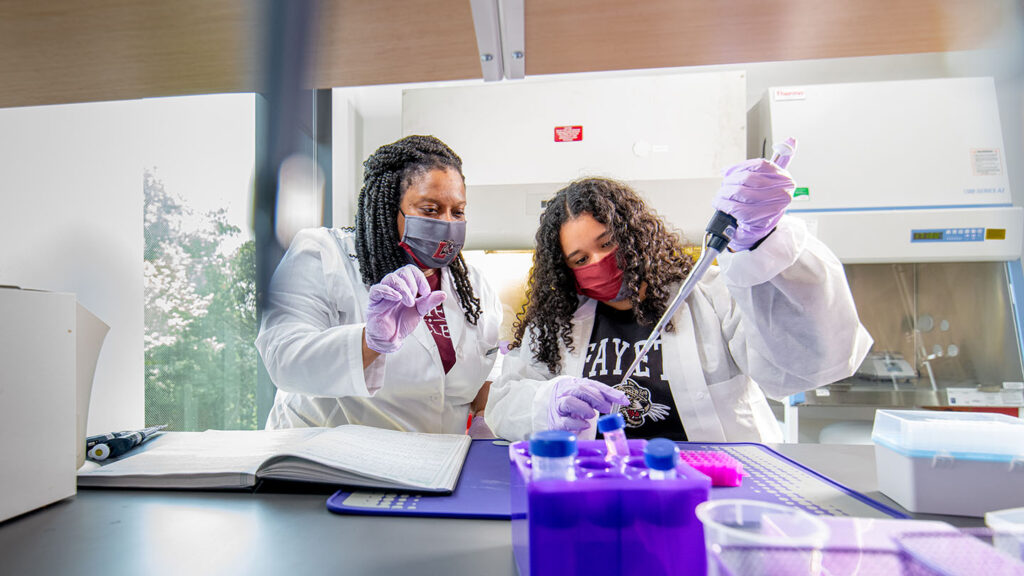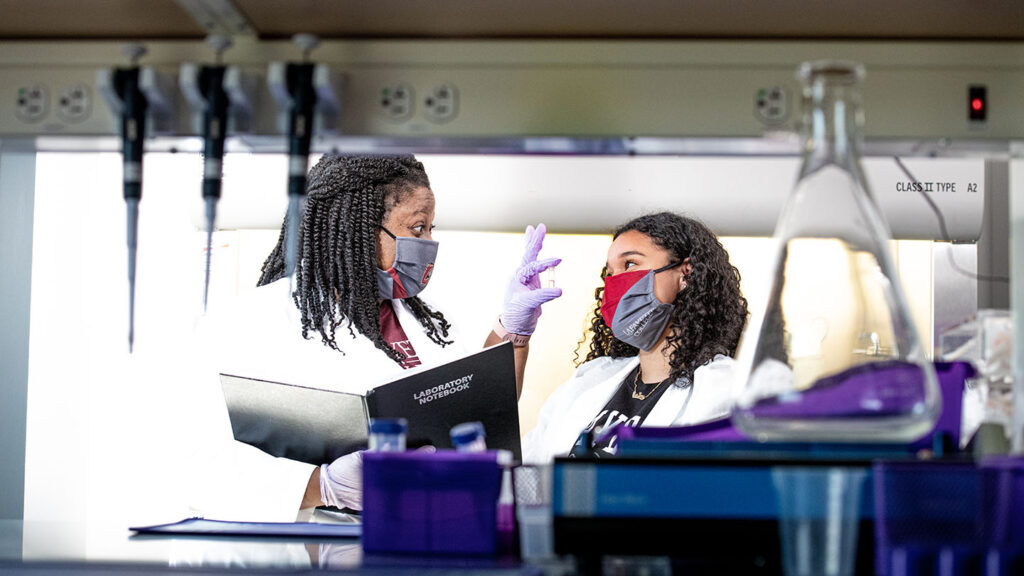Why are cancer tumors more aggressive in African Americans?

Prof. Khadijah Mitchell and Destiny Ortiz Fernandez ’22
Khadijah Mitchell, Peter C.S. d’Aubermont, M.D., Scholar of Health and Life Sciences and assistant professor of biology, is a human geneticist with a focus on health disparities and epigenetics. She studies the links among genetics, the environment, and cancer.
Mitchell, who joined Lafayette in 2017, has spent most of her career researching why African Americans have higher incidences of lung cancer compared to European Americans. In 2018, she expanded her research to study kidney cancer.
“I know that there are racial differences in lung cancer, and I’m trying to see if race is a driver with kidney cancer. If there is a genetic factor, it means we can develop therapies that target the cancer in more effective ways.”
Mitchell and her team of student research assistants have found that lung and kidney tumors in African American and European American patients are molecularly different. In other words, certain genes are turned off (or on) in a tumor in an African American patient while those same genes are turned on (or off) in a tumor in a European American patient.
What’s more is cancer tumors in African Americans are more aggressive. They’re more likely to spread, making them harder to treat. “It’s the same disease, but there are features of the disease that make it so these patients have poorer health outcomes,” says Mitchell.
One of the innovative aspects of her research involves looking at so-called “chromosome shattering” (the disassembly and resulting reassembly of DNA), which could explain why cancer tumors tend to be more aggressive in African Americans.

Khadijah Mitchell and Destiny Ortiz Fernandez ’22
Destiny Ortiz Fernandez ’22 is working with Mitchell to uncover if there is a genetic link between race and two types of kidney cancer: papillary renal cell carcinoma and chromophobe renal cell carcinoma.
“I think it’s really important to study racial health disparities, and how they are impacting communities of color, specifically Black communities,” says Fernandez, a neuroscience major. “I hope that this project contributes to a future where health disparities are taken into consideration when looking at how to help communities that are disproportionately impacted by diseases. Knowing that my work is meant to help people who look like me or people from my community is extremely humbling and a privilege. As a Lafayette student, this experience is further prepping me for my future endeavors as a scientist. Under Dr. Mitchell’s mentorship, I feel more confident than ever in my skills and knowledge.”